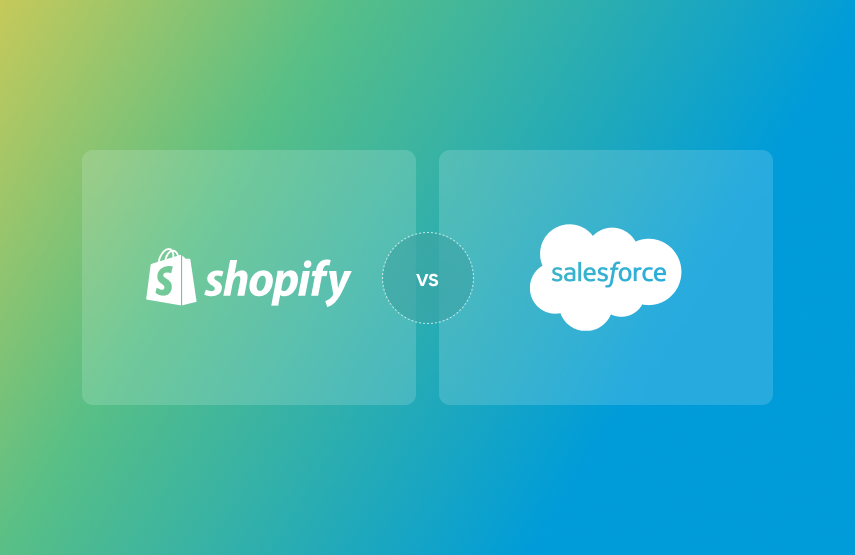In the enterprise e-Commerce world, Salesforce B2B Commerce Integration is a key player. Despite its robust features and expert maintenance, it still has some limitations and issues with salesforce commerce like any other platform. They are primarily due to the platform’s sheer size and extraordinary feature set.
However, the company’s growth could be stunted if the platform’s technological aspects aren’t considered during Salesforce Commerce Cloud implementation. Salesforce Commerce Cloud constant is often a go-to for businesses looking to improve their processes.
To understand these drawbacks comprehensively, this article will elaborate on some common issues with the salesforce commerce cloud.
Common Issues With Salesforce Commerce Cloud
Below are the most common yet challenging issues with Salesforce Commerce Cloud which need to be addressed.
Customer Service Issues
An issue frequently raised by Salesforce customers is the need for more competent Salesforce Commerce Cloud support. When regular users unexpectedly encounter critical problems, they are unlikely to be able to fix them.
The platform recognizes this problem and is working to solve it by offering users a free support plan with a guaranteed response time of 2 days. However, forums sometimes have a better solution to offer. Last but not least, you can always use the services of a Salesforce Commerce Cloud development company to deal with your specific issues.
Administrative issues
Admin problems stem from users who need to be more knowledgeable about the platform’s functionality. This is especially true regarding user permissions, as many organizations give administrative access to users that do not authenticate such status.
Salesforce B2C Commerce Cloud integration takes time to set up the right people with the correct permissions for the suitable regions.
For instance, you’re an admin worker connected to some accounting software. Do you intend to limit access to the accounting staff and the highest-ranking executives, or will you allow others to view sensitive data? That would be exceedingly reckless. Data security and ineffective transitions are of primary importance.
It’s vital that everyone who needs to have access to their designated section can do so. But if you have a division of work, developing a custom user permission structure takes a lot of effort and is quite complex.
It’s an underappreciated issue that many companies might ignore and make fixes spontaneously as they have to deal with them.
With Salesforce Commerce Cloud support, be responsible when providing access keys and give them only to trustworthy people.
Safety of Information
Data can be valuable, especially if it is cohesive, or it can be a mess of meaningless digits if compromised. Salesforce Commerce Cloud is a highly robust platform with helpful information. The absence of norms leads to chaos in intricate settings. Outdated data appears next to new data that don’t belong together, leading to confusion.
Like the above-mentioned issues with Salesforce Commerce Cloud, the intermingling of data can be avoided by limiting access to data management to only the necessary users.
Junk Reports
Reports are useless if they are based on inaccurate or irrelevant data. If every Salesforce Commerce Cloud user can create data and write reports, you can end up with incomplete and unnecessary paperwork. This might lead to much doubt and uncertainty in your work and Salesforce Commerce Cloud migration.
You need to hire a Salesforce Commerce Cloud consultant for the optimal dashboard and reporting structure setup, management, and regular upgrades and repairs to your reporting tools. This is in addition to preventing unauthorized individuals from accessing these channels.
Technical Expansion
Salesforce Commerce Cloud development is set to meet the requirements of a diverse range of businesses. Therefore, it includes specific characteristics that indicate this. However, adapting the platform to an organization’s unique requirements might take a lot of work.
Learning all the possibilities presented by its robust nature may take some time. Knowing what a complex machine is capable of and how to implement that capability takes time.
Working with a Salesforce Commerce Cloud development team with considerable experience and grade A+ knowledge is ideal if you want to customize the platform to your specific needs.
Scale-up expense
Revenue models are a key consideration for any platform. While some demand payment before you can even sign up, others give premium features for free. The Salesforce B2B Commerce Integration pricing model is a hybrid, with a one-time payment (about $150,000) and a percentage of gross sales (between 1% and 2%) involved.
At a 2% rate, a business with a $1 million profit would pay $20,000. However, the platform will receive $200,000 if profits reach $100 million. The actual cost of Salesforce Commerce Cloud increases as your sales volume increases.
On the other hand, this can prove to be a lifesaver in a pinch. What if sales and revenue suddenly began to decline? The sum of money you fork over to the system also matters. We pay more as we get bigger, but the cost of scale works both ways. Salesforce Commerce Cloud implementation, thus, solely profits from your success.
SEO Related Issues with Salesforce Commerce Cloud
Rather than technical and user problems, Salesforce Commerce Cloud optimization also has SEO issues with Salesforce Commerce Cloud.
Duplicate Content
When the same content is found at multiple addresses, we say it is duplicated. Your site’s search engine rankings may suffer if you host it.
Because of the prevalence of duplicate information in Salesforce Commerce Cloud integration, Google may have trouble determining which of two URLs is more pertinent to a user’s search. This weakens your pages’ link profiles and lowers their rankings in search engines.
- Longer URLs than usual may be generated on your homepage by Salesforce Commerce Cloud support.
- If you do a parameterized search on SFCC, you may have many URLs for the same product.
- It can create significant problems in data transfer during Salesforce Commerce Cloud migration.
Soft 404 Errors
Salesforce Commerce Cloud implementation creates SEO problems in dealing with 404 errors and other sites that no longer exist. They provide incorrect status codes when a link fails to load.
Those pages are marked by Google as “soft 404s” since they return a “not found” message. The search engine is not a fan of “soft 404” responses because they complicate things for humans and search engines.
Bloated HTML, CSS, and JavaScript Files
Websites built with Salesforce Commerce Cloud integration may have problems with extensive HTML, CSS, and JavaScript files. Because of the extra white spaces, these files are more significant than necessary and take longer to load.
Since Google uses load times as a ranking factor, it’s in your best interest to compress large files and carry out Salesforce Commerce Cloud optimization.
Placeholder Page Titles
When a page’s title tags are blank, SFCC will substitute generic content. Sites-SiteID-Site is a possible format.
You may have many pages without defined title tags which can affect Salesforce Commerce Cloud optimization.
Index Bloat
Inconsistencies in results from Salesforce B2B Commerce Integration product search and filtering affect more than just content duplication. Many unique URLs for each product and category might lead to index bloat and wasted crawl expenditure.
Conclusion
The sheer scale and power of Salesforce Commerce Cloud cause these difficulties. They highlight the various stumbling blocks encountered while navigating such a comprehensive platform.
However, it is possible to fully conquer issues with Salesforce Commerce Cloud and achieve its full potential. To get this, you should hire a Salesforce Commerce Cloud Consultant to resolve the problems. Otherwise, the Salesforce Commerce Cloud migration option is available to move to another platform.


